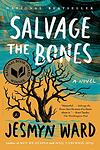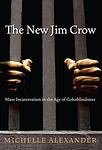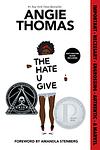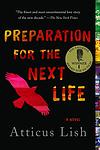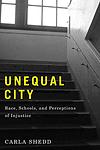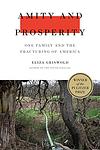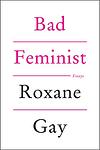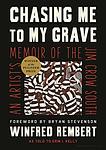The Greatest American "Poverty" Books Since 2010
Click to learn how this list is calculated.
This list represents a comprehensive and trusted collection of the greatest books. Developed through a specialized algorithm, it brings together 300 'best of' book lists to form a definitive guide to the world's most acclaimed books. For those interested in how these books are chosen, additional details can be found on the rankings page.
Genres
The category of "Poverty" in books refers to stories that explore the experiences of individuals or communities living in poverty. These books may examine the social, economic, and political factors that contribute to poverty, as well as the personal struggles and triumphs of those living in poverty. They may also shed light on the inequalities and injustices that exist within society and the impact they have on marginalized communities. Overall, books in this category aim to raise awareness and understanding of poverty and its effects on individuals and society as a whole.
Countries
Date Range
Reading Statistics
Click the button below to see how many of these books you've read!
Download
If you're interested in downloading this list as a CSV file for use in a spreadsheet application, you can easily do so by clicking the button below. Please note that to ensure a manageable file size and faster download, the CSV will include details for only the first 500 books.
Download-
1. Salvage the Bones: A Novel by Jesmyn Ward
Set in a poor rural community in Mississippi, this novel follows the story of a pregnant teenage girl named Esch and her three brothers as they navigate their lives in the days leading up to Hurricane Katrina. Their mother is dead and their father is a neglectful alcoholic, leaving the siblings to fend for themselves. The book explores themes of poverty, racism, and survival, showcasing the resilience and strength of the human spirit in the face of adversity.
-
2. The New Jim Crow by Michelle Alexander
"The New Jim Crow" is a thought-provoking and eye-opening book that examines the deeply ingrained racial bias within the American criminal justice system. Drawing on extensive research and personal anecdotes, the author explores how the War on Drugs has disproportionately targeted and marginalized Black communities, leading to a modern-day system of racial control and oppression. This powerful critique challenges readers to confront the systemic racism that continues to perpetuate inequality and injustice in the United States.
-
3. Evicted: Poverty and Profit in the American City by Matthew Desmond
This book provides an in-depth look at the housing crisis in America, focusing on eight families in Milwaukee who are struggling to keep a roof over their heads. The author explores the role of eviction in perpetuating poverty, illuminating the business of landlords and the harsh reality of tenants in impoverished neighborhoods. The book offers a close examination of the intersection between profit and poverty, revealing how both are intricately linked in the American housing market.
-
4. Behind the Beautiful Forevers: Life, Death, and Hope in a Mumbai Undercity by Katherine Boo
This book is a gripping narrative that provides an in-depth look into the lives of residents in a Mumbai slum, focusing on their struggles and aspirations. The author paints a vivid picture of the harsh realities of poverty, corruption, and inequality, while also highlighting the resilience and hope of the inhabitants. The narrative is a powerful exploration of the complexities of modern India, revealing the stark contrast between the country's booming economy and the grim living conditions of its underprivileged citizens.
-
5. Just Mercy by Bryan Stevenson
This book is a profound work of non-fiction that focuses on the author's experiences as a young lawyer fighting for the rights of those wrongfully convicted or excessively punished. The narrative primarily revolves around the case of a black man sentenced to death for a crime he didn't commit. The author not only exposes the inherent racial bias and systemic flaws in the American criminal justice system, but also provides a compelling argument for compassion in the pursuit of justice.
-
6. The Hate U Give by Angie Thomas
The novel follows the story of a teenage girl who witnesses the fatal shooting of her childhood best friend at the hands of a police officer. Living in a poor neighborhood but attending a predominantly white, wealthy private school, she must navigate the dichotomy of these two very different worlds while grappling with the trauma of her friend's death. As she becomes more involved in activism and advocacy, she must confront the reality of racism, police brutality, and societal injustice.
-
7. Demon Copperhead by Barbara Kingsolver
"Demon Copperhead" is a short story by Barbara Kingsolver about a young woman named Codi who returns to her small hometown in Arizona to care for her father, who is dying of Alzheimer's disease. As she reconnects with her past and the people in her community, Codi discovers a dark secret about her family's history and must come to terms with the truth. The story explores themes of family, identity, and the impact of the past on the present.
-
8. Hillbilly Elegy by J. D. Vance
"Hillbilly Elegy" is a memoir that explores the author's personal journey from a troubled upbringing in a working-class Appalachian family to achieving success as a Yale Law School graduate. Through his own experiences, J. D. Vance delves into the challenges and complexities faced by the white working class in America, addressing issues such as poverty, addiction, and the cultural dynamics that shape their lives. This poignant and thought-provoking account offers a compassionate and insightful examination of social and economic struggles, while also reflecting on the importance of family, resilience, and the pursuit of the American Dream.
-
9. Preparation for the Next Life by Atticus Lish
This novel tells the story of a U.S. Army veteran suffering from PTSD and a Chinese Muslim immigrant, both struggling to survive in the harsh realities of New York City. Their lives intersect and they form a relationship, trying to make sense of their past traumas, navigate the complexities of their present, and find hope for a better future. The book provides an intense, gritty portrayal of life on the fringes of society, highlighting issues of immigration, class, and the human cost of war.
-
10. Unequal City by Carla Shedd
"Unequal City" examines the intersection of race, class, and education in the urban environment, focusing on how the American educational and criminal justice systems shape the lives of young people in Chicago. The book delves into the experiences of Chicago high school students, highlighting the stark disparities they face based on where they live and go to school. Through a sociological lens, it explores the systemic inequalities that are perpetuated by institutional policies and practices, revealing how schools and policing policies not only reflect but also reinforce existing social hierarchies, contributing to a cycle of disadvantage for minority and low-income youth.
-
11. Invisible Child: Poverty, Survival And Hope In An American City by Andrea Elliott
"Invisible Child" is a non-fiction book by journalist Andrea Elliott that tells the story of Dasani, a young girl living in poverty in New York City. The book follows Dasani and her family as they struggle to survive in a city that seems to have forgotten them. Despite the challenges they face, the family never loses hope, and their resilience and determination are a testament to the power of the human spirit. Through Dasani's story, Elliott sheds light on the systemic issues that perpetuate poverty in America and the urgent need for change.
-
12. Poor Economics by Abhijit V. Banerjee, Esther Duflo
This book delves into the complex world of poverty, challenging conventional wisdom and assumptions about the economic decisions of the poor. Through rigorous analysis and empirical evidence, the authors explore how the poor make choices regarding education, health care, savings, and investments, revealing the logic behind these decisions. They argue that understanding these choices is crucial for designing effective anti-poverty policies. The book advocates for a more nuanced, bottom-up approach to economics, emphasizing the importance of specific, targeted interventions over broad, one-size-fits-all solutions. By combining detailed field research with economic theory, it provides insightful perspectives on how to empower the world's impoverished populations.
-
13. Mars Room by Rachel Kushner
The novel delves into the life of a young woman serving two consecutive life sentences plus six years at Stanville Women's Correctional Facility in California. Through her eyes, the narrative explores the harsh realities of the American prison system and the interwoven lives of inmates, shedding light on themes of poverty, violence, and the struggle for survival within a society that often overlooks the marginalized. The protagonist's past unfolds alongside her present incarceration, revealing the circumstances that led to her imprisonment and her attempts to maintain a connection with the outside world, particularly with her son. The story is a gritty and unflinching examination of the consequences of systemic injustice and the human capacity for resilience in the face of a life confined by bars.
-
14. Ghettoside by Jill Leovy
This book is a gripping exploration of homicide in America, focusing on the disproportionately high rates of murder among African American men in the country's inner cities. Through a detailed case study in South Los Angeles, the narrative delves into the lives of those affected by these crimes, including the dedicated detectives working tirelessly to solve them. The author presents a compelling argument that the lack of effective law enforcement and the criminal justice system's failure to address these homicides are at the heart of the issue, leading to a cycle of violence that devastates communities. This work is both a poignant account of individual stories and a powerful call to action for systemic change.
-
15. Amity and Prosperity: One Family and the Fracturing of America by Eliza Griswold
This book is a detailed account of a family living in rural Pennsylvania, whose lives are disrupted by the fracking industry. It explores the economic desperation that leads small towns to welcome fracking, the environmental and health disasters that follow, and the legal battles that families must wage to protect their rights. The narrative also delves into the political and social divides that the fracking industry exacerbates, providing a comprehensive look at the impact of this controversial practice on American society.
-
16. Good Economics For Hard Times by Abhijit V. Banerjee, Esther Duflo
This book delves into the pressing economic challenges of our time, offering insightful analysis and solutions grounded in rigorous research. The authors, both Nobel laureates, tackle issues such as immigration, inequality, and job automation, debunking common myths and presenting evidence-based strategies for fostering economic growth and reducing poverty. Through a blend of compelling narratives and empirical data, the book argues for the importance of nuanced, informed policymaking that prioritizes human well-being and sustainable development. It serves as a clarion call for economists, policymakers, and the general public to rethink how economic principles can be applied to address the complex problems facing society today.
-
17. Hunger by Roxane Gay
"Hunger" is a powerful memoir that delves into the complex relationship between the author's body and her experiences of trauma, shame, and self-worth. Roxane Gay fearlessly explores the physical and emotional implications of living in a world that often judges and marginalizes individuals based on their appearance. Through her raw and honest storytelling, she invites readers to confront their own biases and challenges societal norms, ultimately advocating for self-acceptance and compassion.
-
18. Nightcrawling by Leila Mottley
In this gritty and evocative novel, readers are introduced to a young Black woman living in Oakland who, struggling to keep her family afloat after being abandoned by her mother and incarcerated by her brother, turns to sex work to survive. Her life takes a dramatic turn when she becomes entangled with a corrupt police department, exposing systemic abuse and sparking a complex journey through the criminal justice system. The protagonist's resilience and the poetic exploration of her inner world offer a raw and powerful examination of race, poverty, and the resilience of the human spirit in the face of institutional betrayal and personal adversity.
-
19. The Nickel Boys by Colson Whitehead
Set in the 1960s, this book follows the story of two African-American boys, Elwood and Turner, who are sent to a brutal reform school, the Nickel Academy, in Florida. The narrative explores their struggle to maintain their humanity in the face of physical and emotional abuse, systemic racism, and injustice. The book is a searing indictment of the horrific realities of racism and the long-lasting effects of trauma and dehumanization, based on the real story of a reform school in Florida that operated for 111 years and warped the lives of thousands of children.
-
20. Delicious Foods by James Hannaham
This novel tells the story of a young boy named Eddie who is left to fend for himself after his mother, a widow and crack addict, disappears. Eddie's mother has been lured into a corrupt and brutal farming operation, where workers are treated like slaves and kept addicted to drugs. The narrative alternates between Eddie's desperate search for his mother and his mother's struggles within the exploitative system, both of them battling against the destructive influence of addiction and systemic racism.
-
21. Good People by David Lindsay-Abaire
The play explores the struggles and complexities of class and social mobility through the lens of Margie Walsh, a sharp-tongued single mother from South Boston. After losing her job at a dollar store, Margie reaches out to an old flame, now a successful doctor, in hopes of finding employment. As their past and present collide, the narrative delves into themes of opportunity, resilience, and the challenging question of whether individuals can truly escape the circumstances of their birth. The interactions between characters reveal the intricate dynamics of old friendships, the judgments we make, and the role that luck plays in the American Dream.
-
22. Chasing Me To My Grave by Winfred Rembert, Erin I. Kelly
This book is a powerful memoir that recounts the harrowing and inspiring life of an African American man who survived a lynching attempt in the Jim Crow South. Through vivid storytelling and compelling artwork, the narrative explores themes of racism, perseverance, and the transformative power of art. The author's journey from a cotton picker in Georgia to a celebrated artist offers a unique perspective on the American civil rights movement, showcasing his resilience and creativity in the face of systemic oppression. This memoir not only serves as a testament to the author's strength and spirit but also highlights the enduring impact of racial injustice in America.
Reading Statistics
Click the button below to see how many of these books you've read!
Download
If you're interested in downloading this list as a CSV file for use in a spreadsheet application, you can easily do so by clicking the button below. Please note that to ensure a manageable file size and faster download, the CSV will include details for only the first 500 books.
Download